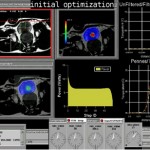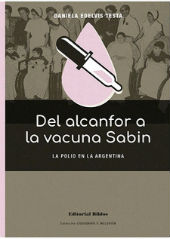4th of July

Psychopathic Ward, 1941 by Robert Riggs (1896-1970). NIH / Moma. This illustration shows women in Philadelphia State Hospital. eformers criticize mental hospitals as prision-like, with bars on the windows and little treatment.
On the 4th of July, we selected articles and blog posts that show the United States’ contribution to the history of medicine. Topics include discussions about eugenics, race, mental health, yellow fever, programs of the Rockefeller Foundation, and interviews with prominent scholars.
The United States in HCS-Manguinhos:
Eugenics and sterilization in the United States, 1920 – 1950 Alexandra Minna Stern and her team at the University of Michigan reviews medical records to investigate ethnic and gender bias in sterilization policies.
Eugenics and sterilization in the United States In an interview to HCS-Manguinhos, Alexandra Stern, University of Michigan, talks about her initial findings related to ethnic and gender bias in sterilization policies.
On the history of medicine in the United States In this interview, published in HCS-Manguinhos, Charles Rosenberg, professor of the history of science at Harvard University offers reflections and considerations on the history of medicine and public health.
Race in science: a paradoxal idea Evelynn Hammonds, Chair of the Department of History of Science at Harvard University, presents some of the most important works and approaches that marked the historiography of race, specially in the United States.
Science and gender, feminism and history of science: an interview with Evelyn Fox Keller This interview covers the trajectory of Evelyn Fox Keller, emeritus professor of history and philosophy of science at the Massachusetts Institute of Technology. Keller reflects on her career and the challenges she had to overcome to push back the frontiers of science with her pioneering work on language, gender, and science, which has been very influential in changing views in the history of science.
Los proyectos de investigación nutricional de la Fundación Rockefeller en México Durante 1945, un oficial de la “International Health Division” de la Fundación Rockefeller fue enviado a México para hacer varios viajes de exploración con el objeto de encontrar sitios idóneos para ampliar los proyectos de investigación nutricional que la fundación filantrópica tenía en el país.
Research Stipend Program: Rockefeller Archive Center The research stipends are designed to support research by serious scholars in the collections located at the Rockefeller Archive Center. Many of the collections of the Rockefeller Archive Center are of great interest to Brazilian researchers.
Agricultural programs in Mexico and India In her research report, Gabriela Soto Laveaga, Professor of the History of Science at Harvard concentrates on different aspects of the RF’s activities in this arena.
Scientific Partnerships in Brazil and the Malaria Service of the Northeast Gabriel Lopes, postdoctoral researcher at Fiocruz, presents how Rockefeller Foundation’s International Health Division collaborated closely with Brazilian entomologists in the fight against malaria in Brazil.
La pandemia: ¿El acto final de Donald Trump? “De nuevo, se nota el genio político de Trump – o de sus asesores. El sentimiento anti-Trump en este país es tan fuerte que anula todo razonamiento frío de la situación actual.” Eric Carter, Profesor en el Macalester College hace una reflexión sobre la actuación del presidente de Estados Unidos en la pandemia.
A referendum on Trump’s policies and leadership Eric D. Carter, Edens Associate Professor of Geography and Global Health at Macalester College examines the midterm election results and the prominence of themes such as healthcare and immigration.







